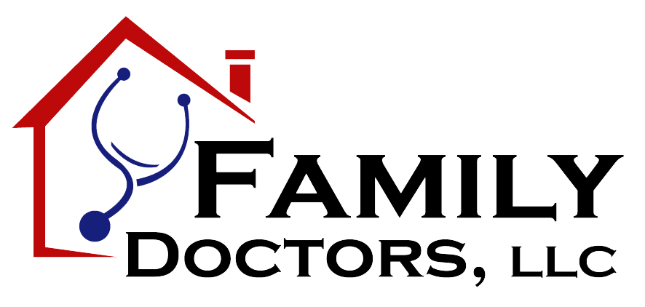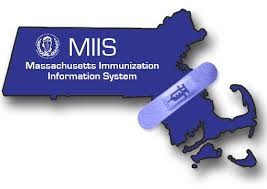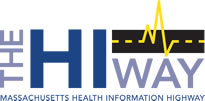
Family Doctors, LLC has served the North Shore for over fifty years. The physician practice offers many services often seen in larger medical offices in a smaller community setting to allow for more individualized care. These services include urgent care, primary care, specialists, labs and radiology, and exercise and wellness classes.
The mission of Family Doctors is to deliver high quality, patient-centered, compassionate care to children and adults.
Challenge

The Massachusetts Immunization Information System (MIIS) is a Massachusetts Department of Public Health program whose goal is to offer healthcare providers and families a tool that helps ensure all individuals are immunized based on current recommendations. The MIIS establishes a consolidated and secure real-time immunization record for Massachusetts residents, based on immunization data sent by care providers to the MIIS registry. Via data retrieval functionality, the system:
- Gives care providers access to the consolidated immunization history of their patients;
- Enables clinical decision support alerts from a provider’s EHR in accordance with vaccination schedules;
- Supports providers in sending reminders to individuals, parents, and caregivers when an immunization has been missed, lowering the risk of over- or under-immunization;
- Saves schools time in their effort to ensure compliance with immunization requirements; and
- Allows public health systems to use the information to monitor and control vaccine-preventable diseases.
Family Doctors was already sending data to the MIIS registry over the Mass HIway, but their unidirectional exchange provided no means to retrieve data from the repository. To acquire the benefits of retrieval of their patients’ consolidated immunization data, the practice needed a bi-directional solution.
Solution
To improve patient care and reduce the likelihood of errors, Family Doctors worked to establish a bi-directional exchange with the MIIS via the Mass HIway. Using the QVERA HL7 interface engine, they built a query that connects with the MIIS registry to retrieve a patient’s immunization history over their existing Mass HIway connection, and populates the practice’s EHR (Electronic Health Record) system with history retrieved from MIIS.
When a new patient is seen, the staff uses this new query to automatically retrieve the patient’s immunization information from MIIS. As the data is stored in the EHR, this gives physicians a complete record of prior immunizations, allowing them to easily verify any vaccinations the patient may need. The automated interface offers significant improvement in workflow and data quality, and makes both over-immunization and missing necessary immunizations less likely.
Benefits
Connecting to and using the MIIS registry provides Family Doctors many benefits over their prior methods of maintaining immunization records, including:
- Consolidated record of immunization data from multiple providers;
- Clinical decision support based on an up-to-date immunization history and forecast; and
- Improved data quality, with improved timeliness, completeness, and accuracy.
Connecting to the MIIS registry also allows Family Doctors to meet the Stage 3 requirement of Meaningful Use through public health and clinical data registry reporting.
Implementation
After Family Doctors implemented the bi-directional connection, the practice provided training to the staff in how to use the new data retrieval forms that were integrated into the EHR. After training, the staff was able to seamlessly transition to adding the step of querying the MIIS registry when seeing new patients, providing valuable clinical information for the physicians without significant additional staff work.
Implementation Challenges
The main challenge the practice faced was the setup and configuration of the three systems involved: MIIS, the QVERA interface, and GE Centricity (Family Doctors’ EHR). The practice needed to coordinate all three systems to ensure proper functionality, which proved difficult at times as there were multiple parties involved. It was also a challenge to gather the resources needed to test and validate before rolling out the new workflow. These challenges were addressed by sticking as close to the implementation schedule as possible, identifying issues as they arose, and correcting them immediately.
Impact
Family Doctors’ main goal for implementing the new workflow was to gather immunization data so that they can better serve their patients. Another goal was to have and provide open access to the immunization information. These goals were fulfilled, as having access to the central MIIS repository has enabled the practice to provide better continuity of care for patients.
Improving Patient Care
Because Family Doctors now has easy access to the immunization history of their patients, they can more easily provide necessary vaccinations without worry that the patient may accidentally receive a duplicate vaccination, or that they may miss a needed vaccine.
Prior to the implementation, Family Doctors had no access to immunization records for new patients unless provided to them by the patients themselves. The bidirectional exchange with MIIS ensures that Family Doctors has accurate vaccination information without having to rely on patients to provide their immunization records.
Timeline
Family Doctors connected to the Mass HIway in March 2017 to submit data to the MIIS. In 2019 Family Doctors began working to take advantage of the option to use query to receive patient immunization data from the MIIS in addition to submitting data. The project took approximately 4 months to complete, and they moved the new query into production in August of 2019.
Feedback
Staff were receptive to the new workflow, and had few issues integrating the changes into their practice. As the implementation was completed over the summer, it took slightly longer to fully transition to the new workflow due to summer vacation schedules and limited resources.
Recommendations
To be successful in implementing a similar immunization workflow, Family Doctors recommends good coordination and communication between the resources at the MIIS, the interface vendor, and the application provider. This will provide a more seamless transition and reduce delays in rolling out the new workflow.
For more information on the MIIS and how it can assist your organization, visit the mass.gov MIIS page.
